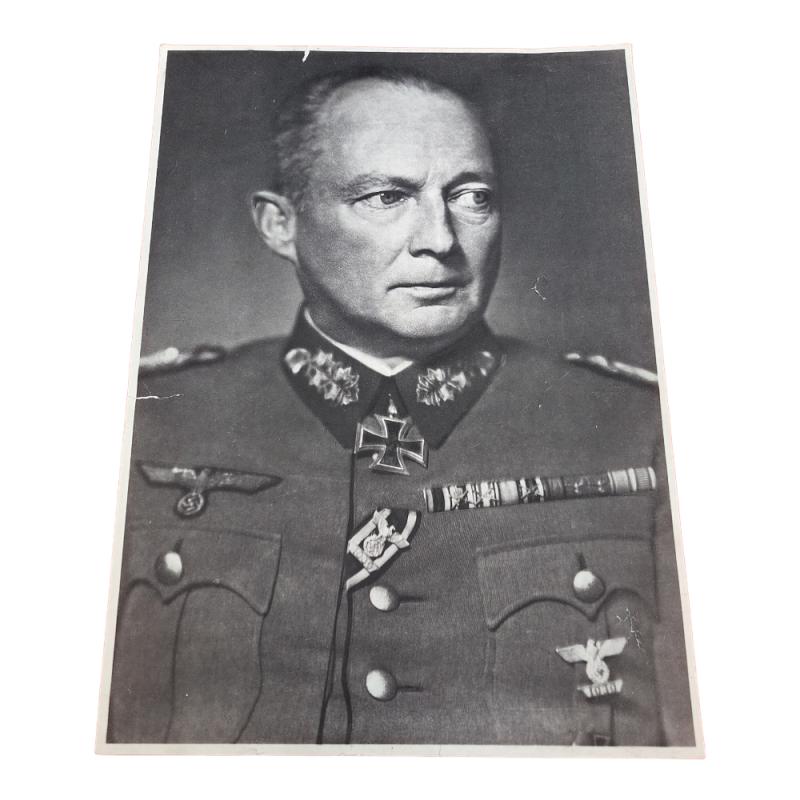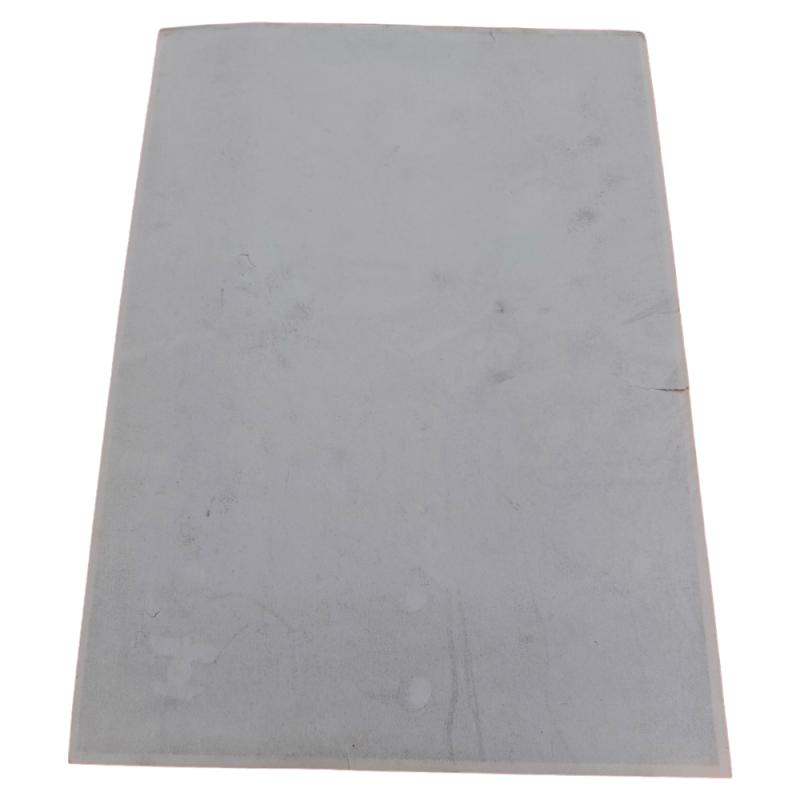German Portrait General Von Kluge
Portrait photo of the German general Günther von Kluge. The photo has minor damage.
Günther Adolf Ferdinand (Hans) von Kluge (Posen, October 30, 1882 - Metz, August 19, 1944) was a German soldier during the First and Second World Wars. He was a general field marshal in World War II.
Von Kluge was born in Posen (Prussia), present-day Poznań in Poland. In 1901 he became an artillery officer. His father, Max von Kluge, was ennobled as a major general in 1913, which also gave Günther a title of nobility. During World War I, he served as a captain in the General Staff.
After the First World War, Von Kluge joined the new Reichswehr in 1919, where he was quickly promoted. In 1933 he was promoted to major general, and in 1934 he became lieutenant general and was assigned to Wehrkreis (Military District) IV in Münster. In 1938, as General der Artillerie, he was given command of Army Group 6 in Hanover. Later that year he was temporarily sidelined for his support of General Werner von Fritsch.
At the outbreak of World War II in 1939, Von Kluge was recalled to active service. He was given command of the 4th Army, which occupied the Polish Corridor. In 1940 he was deployed on the Western front. After the fall of France, he was promoted to field marshal general by Hitler on July 19, 1940, along with eleven others. He then took part in Operation Barbarossa against Russia. In 1942 he was given command of Heeresgruppe Mitte. In the autumn of 1943, Von Kluge was seriously injured in a car accident on his way from Orsha to Minsk, after which he had to convalesce for months. On July 2, 1944, after Gerd von Rundstedt proved unable to stop the Allied invasion, he was entrusted by Hitler with command of the German troops in Normandy. But soon Von Kluge also fell out of favor with Hitler and was replaced by Walter Model.
As early as 1942, Von Kluge was indirectly involved in the Wehrmacht resistance against Hitler. However, he decided not to take an active part in it. Yet he remained indirectly informed. After the failed bombing of Claus Schenk von Stauffenberg on July 20, 1944, he feared that he would be associated with the coup plotters. He was called back to Germany, which made his fears come true. This, and his great disappointment with his failed military campaigns at the end of the war, led him to commit suicide with poison near Metz on August 19, 1944.
Code: 18505
50.00 EUR



